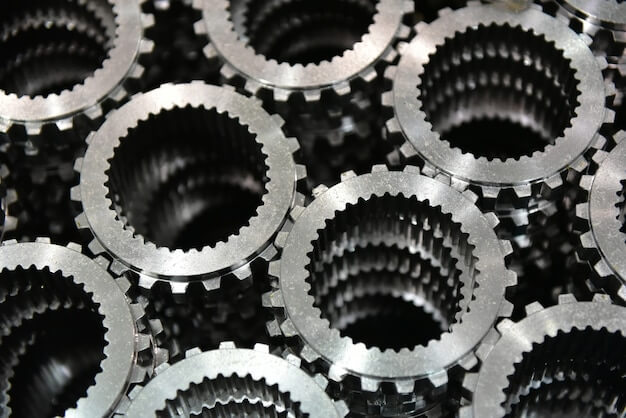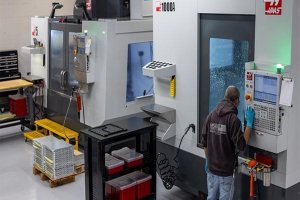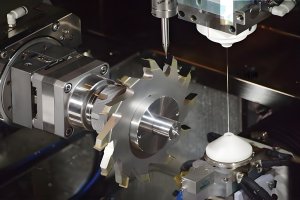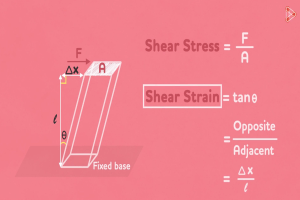Precision Machining of Brass: A Key Method for Medical Applications
Precision machining is a specialized process used to create highly accurate and intricate parts and components. It utilizes advanced software-controlled machinery equipped with high-precision tools to remove material from a workpiece in order to achieve the desired shape and design. With regard to brass manufacturing, precision machining plays an indispensable role in creating custom solutions for applications across various industries, including medicine.
China Online CNC Machining Services – Want.net
In medical applications specifically, this method offers distinct benefits due to its ability to manufacture complex shapes with tight tolerances – vital for engineering life-saving devices such as surgical instruments, medical implants, and diagnostic equipment. Custom, precise cuts are possible without compromising the integrity of the material, resulting in high quality, reliable pieces that can withstand rigorous use in a medical environment. Here’s further insight into how it functions:
- It starts with a brass workpiece placed on a machine.
- This machine uses Computer Numerical Control (CNC) systems to perform operations such as drilling or cutting based on digital instructions.
- The CNC system controls each dimension to ensure the operation is within acceptable accuracy levels.
In this way, precision machining significantly contributes to the manufacturing processes of brass for medical purposes, providing superior control over design intricacies essential for delivering safe and effective healthcare services.
Understanding Brass and its Characteristics
Brass, a copper-zinc alloy, is widely recognized in medical applications due to its numerous favorable properties. Featuring innate antimicrobial qualities that inhibit the growth of harmful bacteria, brass offers an extra level of safety when used in hospital environments. The material also possesses noteworthy thermal conductivity and corrosion resistance, essential characteristics that increase durability and longevity for continuous use within medical settings.
The following outlines some reasons why brass is typically adopted in medical applications:
- Antimicrobial: Its natural propensity to combat bacterial growth adds an intrinsic safety measure, particularly crucial in sanitization-sensitive areas such as hospitals or clinics.
- Thermal Conductivity: Brass’ ability to quickly conduct heat ensures effective sterilization processes; this aids in proper infection control.
- Corrosion Resistance: Unlike other materials, brass stands up well against rust and degradation, making it highly suitable for long-term use in medical equipment.
Thus, understanding brass’s unique properties can guide precision machining strategies, ensuring effectively tailored solutions for different medical applications.
The role of precision machining in medical applications involves:
- Design Considerations: Ensuring that the design of medical components aligns with the capabilities of precision machining tools.
- Material Selection: Choosing the right materials, such as titanium and stainless steel, for medical parts manufacturing based on their properties and suitability for the intended application.
- Quality Assurance: Adhering to medical safety standards and certifications to ensure the production of high-quality and reliable medical components.
For precision machining services for medical applications, consider utilizing a Precision Machining Service to ensure custom solutions tailored to the specific requirements of medical applications.
Custom Solutions in Brass Precision Machining for Medical Applications
Precision machined brass facilitates tailor-made solutions that meet unique industry-specific requirements, particularly within the medical field. Capabilities range from creating complex geometrical instruments to high-volume components with stringent finishing demands. The custom solutions are geared towards accommodating exacting product specifications and strict medical standards for various devices such as neurological implants or surgical tools.
An illustrative case of these personalized solutions is the creation of intricate, miniature connectors crucial for life-saving pacemaker equipment. A top-tier precision machining firm had to develop a one-of-a-kind manufacturing method capable of producing ultra-fine threads and tiny parts with an accuracy level falling below five microns. This challenge was met through innovative tool design and revision of traditional machining processes which resulted in not only meeting but exceeding the medical application’s design requirements.
Advantages of Using Precision Machined Brass Parts in Medicine
The advantages of using precision-machined brass parts in medical applications are numerous. These components offer significant benefits, particularly in terms of durability and resistivity to corrosion-critical attributes in the strenuous environment of a healthcare institution. First and foremost, brass is known for its exceptional strength and high fatigue resistance, contributing to a longer lifespan of the instruments made from it. Moreover, it also possesses superior anti-corrosive properties that protect against rusting, making it an ideal material choice in highly sterilized areas.
- Durability: Medical devices require materials that can withstand repetitive use without wear or tear. The natural strength of precision machined brass ensures durable designs that provide longer service life compared to other materials.
- Resistivity to Corrosion: High chemical resistance makes brass a preferred option for physical contact with drugs, body fluids, and harsh cleaning solutions typical in a medical setting.
- Economic Efficiency: In addition to their supreme performance, these components tend to be cost-efficient due to reduced maintenance needs and infrequent replacements, bringing about potential savings for healthcare institutions.
All these advantages make precision machined brass an indispensable resource in innovative and reliable medical technology advancements.
Challenges in Precision Machining of Brass for Medical Applications
The precision machining process of brass for medical applications can face several challenges, primarily due to the material’s unique characteristics and stringent requirements of the medical industry. For instance, achieving intricate design aspects while maintaining supreme accuracy is often testing as brass, albeit an excellent conductor with corrosion resistance, can deform under high-speed machining. Moreover, ensuring bio-compatibility, sterilizability, and minimal galvanic effects raises the complexity in creating medically effective components.
To overcome these challenges, our team of experts employs vital strategies such as using specialized cutting tools that reduce chances of material deformation, mandating thorough quality inspections at each stage to ascertain conformity, and applying advanced cooling techniques during machining to control heat buildup. Importantly, we leverage top-notch CAD/CAM software for flawless execution of complex designs. Meeting biocompatibility needs involves sourcing only certified lead-free or low-lead brass alloys and efficiently plan procedures for post-machining treatments like passivation, plating or coating.
- Focused use of specialized cutting tools
- Rigorous quality checking protocols
- Enhanced cooling methodologies
- Incorporation of high-end CAD/CAM software
- Selective sourcing of medically-compatible materials
- Effective planning for necessary post-treatment machinings
Other Articles You Might Enjoy
- Brass Precision Prototyping: Leveraging CNC Machining for Quick Turn Machining Solutions
Introduction to Brass Precision Prototyping and CNC Machining In the realm of prototyping, brass precision and Computer Numeric Control (CNC) machining play significant roles. Brass precision prototyping is a process…
- Choosing Between Brass C36000 and C37000 for Precision CNC Machining
Introduction to Precision CNC Machining and its Significance in Manufacturing Precision CNC machining is a manufacturing process that utilizes computerized controls for operating various machine tools such as lathes, mills,…
- Can Precision CNC Machining Meet the Customization Needs of Medical Joint Replacements?
Introduction: The Role of Precision CNC Machining in Medical Device Manufacturing? Precision CNC machining is indispensable in the field of medical device manufacturing, enabling the production of devices with the…
- Precision CNC Machining: Brass vs. Aluminum - Which Material Suits Your Project?
Precision CNC Machining: Overview and Material Selection CNC machining, an acronym for Computer Numerical Control machining, is a process in the manufacturing sector that involves the use of computers to…
- Precision CNC Machining for High-Performance Industrial Machinery
Precision CNC Machining for High-Performance Industrial Machinery The process of Precision CNC (Computer Numerical Control) machining is at the core of manufacturing high-performance industrial machinery. This technique leverages a computer's…
- CNC Machining Aluminum vs. Brass: A Detailed Comparison for Precision Parts Manufacturing
Introduction to CNC Machining and Material Choices CNC (Computer Numerical Control) machining is a critical process in precision parts manufacturing. Its importance lies in its ability to create intricate and…






